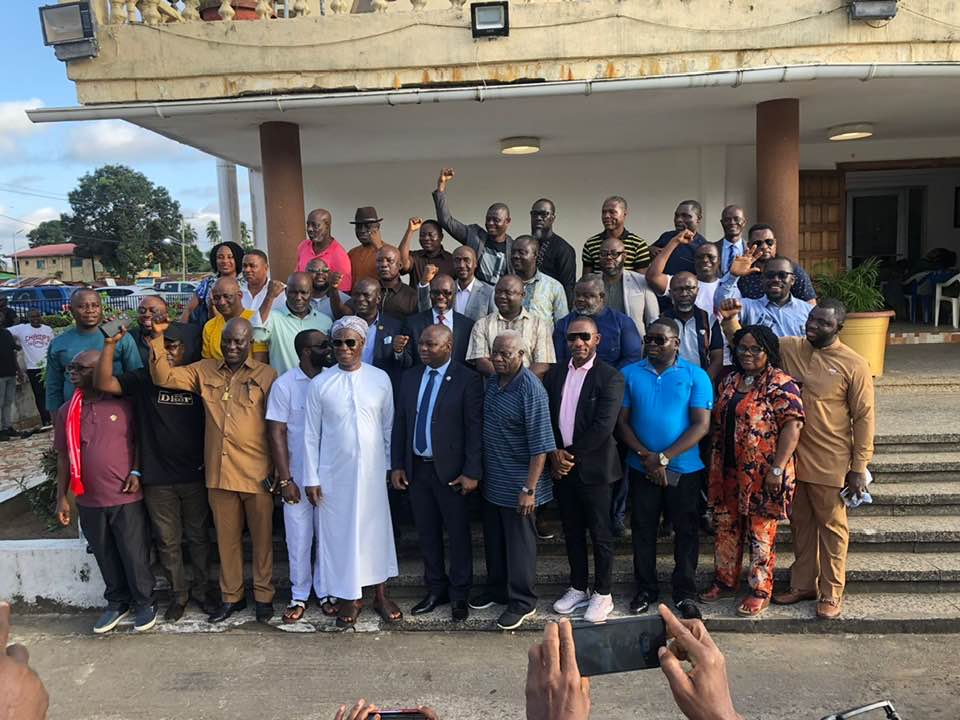In Liberia, there seems to be a cyclical pattern in the political landscape where voters repeatedly elect corrupt and ineffectual leaders, often without any change in their governance approach. The electorate, comprising individuals conditioned by years of political disappointment, often selects candidates who promise quick financial rewards, forgetting the principles that should guide politics. This transformation of politics from a noble pursuit aimed at societal management to a gamble underscores a profound disillusionment with governance. The hopeful aspirations of the electorate are contradicted by their choices, as many candidates view their public office as a vehicle for personal enrichment rather than as a responsibility toward their constituents.
This phenomenon is compounded by the lack of accountability in Liberia’s political system. Despite the existence of laws against corruption, like those outlined in Chapter 12 of Liberia’s Penal Code, violations are rampant, with little to no repercussions for wrongdoers. Specifically, the recent incident involving 47 members of the House of Representatives allegedly receiving bribes to sign a resolution for the removal of House Speaker J. Fonati Koffa exemplifies this impunity. While civil society advocates, like Human Rights Lawyer Cllr. Tiawan Gongloe, call for investigations, the weak institutional framework and lack of political will make such calls largely ineffective. The Liberia Anti-Corruption Commission (LACC), which is meant to address these corrupt practices, is persistently under-resourced and lacks the authority needed to pursue investigations effectively.
The continuum of corruption permeates both public and private sectors, remaining a significant hindrance to the country’s development. Scandals surrounding the manipulation of contracts, misappropriation of aid, and other forms of financial mismanagement cast a shadow on the country’s governance. This tainted leadership not only deepens poverty but also stunts economic growth and potential foreign investment. The abhorrent consequences of this situation are felt acutely by the average citizen, illustrating an astounding disconnect between the lives of political leaders and the reality for the populace. In addition, the high denial rate of U.S. visas for Liberians is symptomatic of the prevailing perception of corruption that clouds the country’s international reputation, further exacerbating the challenges in attaining support for development initiatives.
The political environment fosters a culture where electoral choices often prioritize popularity, associations, and charisma over essential qualities such as integrity and capability. The electorate faces a distressing paradox: although they long for competent leadership that can spearhead reforms and development, they are often swayed by superficial attributes. This misplaced focus can lead to disappointment and frustration as the elected officials frequently disappoint, emulating their predecessors’ failed policies and behaviors. The choices made at the polls hence continue to have lasting ramifications, perpetuating cycles of corruption and inefficiency.
Furthermore, the implications of electing individuals who lack ethical grounding extend beyond just political consequences; they weave through the socioeconomic fabric of the nation. Liberia’s multitude of natural resources, which should rightfully be a boon, instead contrasts sharply with the nation’s standing as one of the world’s poorest countries. The interplay between corruption and poverty results in restricted economic opportunities for a vast population, leading to overwhelming unemployment figures alongside systemic disenfranchisement. The expectation that newly elected representatives would deviate from this destructive pattern, given their entrenched motivations, appears overly optimistic.
With the next elections looming, there lies a critical opportunity for the electorate to reassess their priorities and perhaps attempt to transform the political landscape. The pressing question remains—how long will voters continue to choose the allure of instant gratification offered by unworthy candidates over the hard road of integrity and experience? The answer will ultimately determine Liberia’s trajectory; until the citizens prioritize accountability and ethical governance, they will likely remain trapped in a cycle of disappointment and corruption. The path forward requires vigilance and a collective commitment to making informed choices that align with the nation’s long-term aspirations for growth and prosperity.


